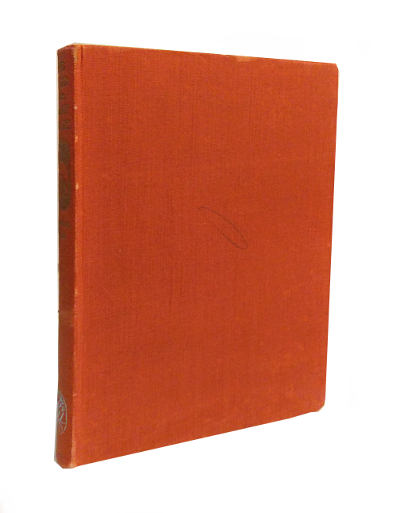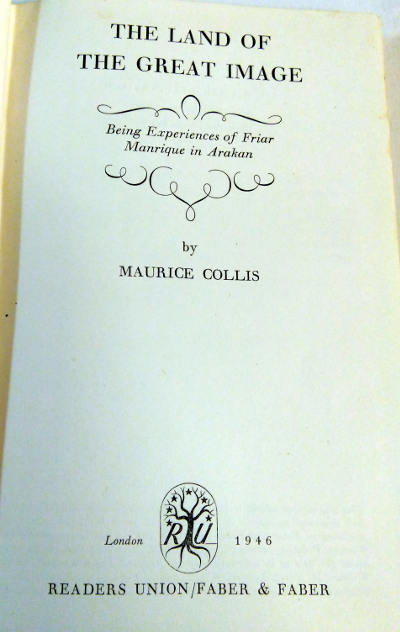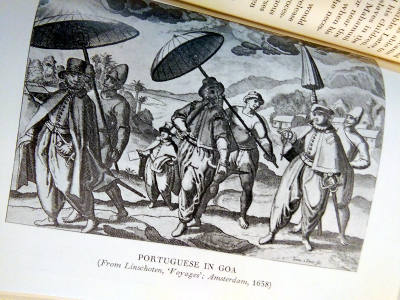Describes the journey of Friar Sebastien Manrique from Goa to Myanmar (Arakan) between 1629 and 1637.
About Sebastien Manrique (from Wikipedia):
Fray Sebastien Manrique (Portuguese: Sebastião Manrique; c. 1590 – 1669) was a Portuguese missionary and traveler. He traveled around countries of the East for about sixteen years during 1628–1643. In 1653, he published his work, titled Itinerario de las Missiones Orientales del P. Manrique (Itinerary of the Oriental Missions of Father Manrique), in Rome.
Manrique traveled to India and reached Dhaka in September 1640 to inspect the Portuguese Catholic Church. He spent about 27 days in Dhaka.
Later Manrique visited Portuguese establishments in Diang and Chittagong. He left India in 1641 and reached home in July 1643.
He was murdered in 1669 in London.
About Maurice Collis (from Wikipedia):
Maurice Stewart Collis (10 January 1889 – 12 January 1973) was an administrator in Burma (Myanmar) when it was part of the British Empire, and afterwards a writer on Southeast Asia, China and other historical subjects.
He was born in Dublin, the son of an Irish solicitor, and went to Rugby School in 1903 and then in 1907 to the University of Oxford, where he studied history. He entered the Indian Civil Service in 1911 and was posted to Burma in 1912. He had postings at Sagaing and elsewhere. In 1917, the British army raised a Burmese brigade with which Collis went to Palestine, but he saw no action. In 1919, he went on leave and travelled in Europe. In the 1920s he was district commissioner in Arakan. In 1929-1930, a period when relations between Burmese, Indians and British became particularly difficult, he was district magistrate in Rangoon. This period is narrated in his memoir Trials in Burma. He gives special attention to the political trial of J. M. Sen Gupta, mayor of Calcutta, for sedition in impromptu speeches made during a brief visit to Rangoon in 1930; also to two criminal trials which became politically charged because they brought to light underlying attitudes of British merchants and army officers to Burmese people. Collis’s judgments were (according to his own analysis) too independent to be pleasing to the then British Government of Burma, arousing the particular disapproval of his superior, Booth Gravely, Commissioner of the Pegu Division. After giving judgment in the last of these trials Collis was hastily moved to the post of Excise Commissioner. After returning to England in 1934, he wrote many books, including Siamese White and Foreign Mud, as well as art and literary criticism. At the age of 65 he turned his hand to painting.




